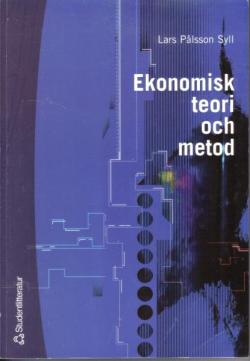What can we learn from economic models? Some economic methodologists have lately been arguing that economic models may well be considered ‘minimal models’ that portray ‘credible worlds’ without having to care about things like similarity, isomorphism, simplified representationality or resemblance to the real world. These models are said to resemble ‘realistic novels’ that portray ‘possible worlds’. And sure: economists constructing and working with that kind of models learn things about what might happen in those ‘possible worlds’. But is that really the stuff real science is made of? I think not. As long as one doesn’t come up with credible export warrants to real-world target systems and show how those models — often building on idealizations with
Topics:
Lars Pålsson Syll considers the following as important: Economics
This could be interesting, too:
Lars Pålsson Syll writes Schuldenbremse bye bye
Lars Pålsson Syll writes What’s wrong with economics — a primer
Lars Pålsson Syll writes Krigskeynesianismens återkomst
Lars Pålsson Syll writes Finding Eigenvalues and Eigenvectors (student stuff)
What can we learn from economic models?
 Some economic methodologists have lately been arguing that economic models may well be considered ‘minimal models’ that portray ‘credible worlds’ without having to care about things like similarity, isomorphism, simplified representationality or resemblance to the real world. These models are said to resemble ‘realistic novels’ that portray ‘possible worlds’. And sure: economists constructing and working with that kind of models learn things about what might happen in those ‘possible worlds’. But is that really the stuff real science is made of? I think not.
Some economic methodologists have lately been arguing that economic models may well be considered ‘minimal models’ that portray ‘credible worlds’ without having to care about things like similarity, isomorphism, simplified representationality or resemblance to the real world. These models are said to resemble ‘realistic novels’ that portray ‘possible worlds’. And sure: economists constructing and working with that kind of models learn things about what might happen in those ‘possible worlds’. But is that really the stuff real science is made of? I think not.
As long as one doesn’t come up with credible export warrants to real-world target systems and show how those models — often building on idealizations with known to be false assumptions — enhance our understanding or explanations about the real world, well, then they are just nothing more than just novels. Showing that something is possible in a ‘possible world’ doesn’t give us a justified license to infer that it therefore also is possible in the real world. ‘The Great Gatsby’ is a wonderful novel, but if you truly want to learn about what is going on in the world of finance, I would recommend rather reading Minsky or Keynes and directly confront real-world finance.
Different models have different cognitive goals. Constructing models that aim for explanatory insights may not optimize the models for making (quantitative) predictions or deliver some kind of ‘understanding’ of what’s going on in the intended target system. All modelling in science have tradeoffs. There simply is no ‘best’ model. For one purpose in one context model A is ‘best’, for other purposes and contexts model B may be deemed ‘best’. Depending on the level of generality, abstraction, and depth, we come up with different models. But even so, I would argue that if we are looking for what I have called ‘adequate explanations’ (Ekonomisk teori och metod, 2005) it is not enough to just come up with ‘minimal’ or ‘credible world’ models.
The assumptions and descriptions we use in our modelling have to be true — or at least ‘harmlessly’ false — and give a sufficiently detailed characterization of the mechanisms and forces at work. Models in mainstream economics do nothing of the kind.
Coming up with models that show how things may possibly be explained is not what we are looking for. It is not enough. We want to have models that build on assumptions that are not in conflict with known facts and that show how things actually are to be explained. Our aspirations have to be more far-reaching than just constructing coherent and ‘credible’ models about ‘possible worlds’. We want to understand and explain ‘difference-making’ in the real world and not just in some made-up fantasy world. No matter how many mechanisms or coherent relations are represented in your model, it still has to be shown that these mechanisms and relations are at work and exist in society if we are to pay attention to the findings.
Science has to be something more than just more or less realistic ‘story-telling’ or ‘explanatory fictionalism’. One has to provide decisive empirical evidence that what can be inferred in a model also helps us to uncover what actually goes on in the real world. It is not enough to present students with epistemically informative insights about logically possible but non-existent general equilibrium models. It also, and more importantly, has to have a world-linking argumentation that shows how those models explain or teach us something about real-world economies. Failing to support models in that way, why should we care about them?
If we are not informed about what are the real-world intended target systems of the modelling, how are we going to be able to evaluate or test the modes? Without giving that kind of information it is impossible to check if the ‘possible world’ models mainstream economists come up with actually hold also for the one world in which we live — the real world.
